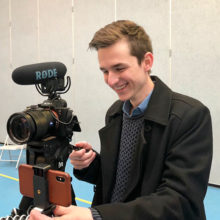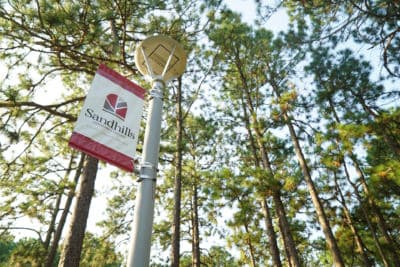Walking across campus on a sweltering summer day at Fayetteville Technical Community College, I watched Dr. J. Larry Keen approach students in classrooms and hallways and ask them to tell their story. They would often share where they were from, why they were at Fayetteville Tech, and where they were headed next.
The diversity of their answers was fascinating. See for yourself:
Fayetteville’s population is always coming and going, largely due to the presence of Fort Bragg nearby. It’s the world’s largest military installation by population. Dr. Keen, who has served as president of the college for 12 years and is a veteran himself, said about 10 percent of students on campus are members of the military; in the 2016-17 school year, there were 2,141 active enlisted students. But those figures don’t include the families of service members who often move across the country with a military spouse or parent.
Several students throughout the day told us they constantly moved as a child, saying they are from “nowhere,” “everywhere,” or are a “military brat.”
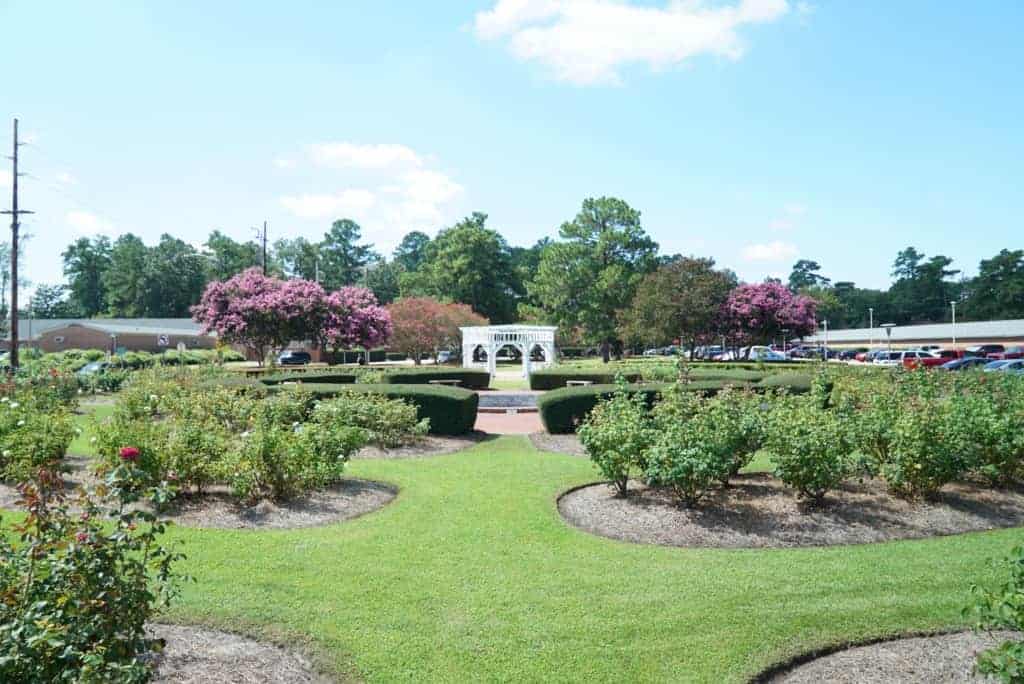

Community colleges are designed to meet the workforce needs of their local communities. But in Fayetteville, the community is constantly changing. Fayetteville Tech rose to that challenge with initiatives designed specifically for military members and families, programs that are catered toward Fayetteville’s local industries, and other programs that teach skills students can take anywhere in the world.
The college created the All American Veterans Center, a space designed to help veterans make the transition back into civilian life. It has special areas for them to relax, as well as people who can connect them with GI Bill benefits and other resources. The college also offers continuing education classes for soldiers, like EMT training, and has classroom spaces on base at Fort Bragg for easy access. Those exiting the military can even get class credit for some of their duties.
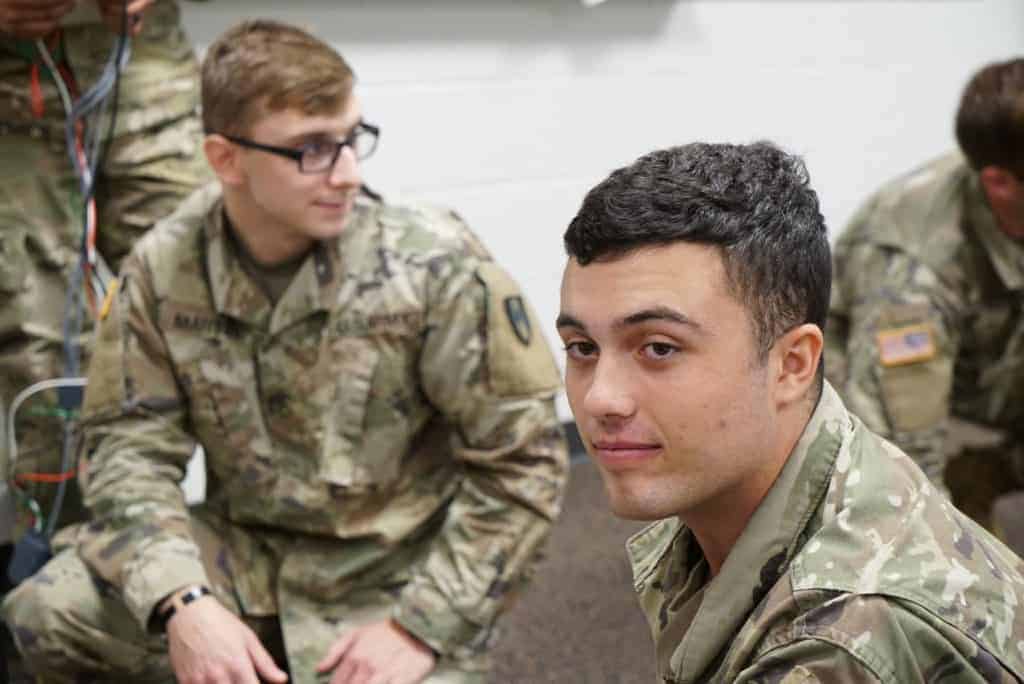

“We believe that because a soldier has done so much training in the military, it should count for something in the academic world,” said Tiffany Johnson, an admissions evaluator in testing. “We actually award more credit for military training than any other community college in the nation.”
The American Council on Education (ACE) provides recommendations for how that training should transfer, and Fayetteville Tech uses that as a starting point. Johnson said that a recruiter, for example, might get credit for a speech class.
“You may have someone who was a 42 Alpha [in the military],” Johnson said. “They work in office systems and things like that. If they want to go into a degree for business management, some of the credits they are awarded will go toward courses that satisfy that degree program.”
The college has also aggressively expanded its online class offerings in hopes of giving students more flexibility if they suddenly have to move across the country. The college offers “flex classes” to soldiers that allow them to stay enrolled and catch up on work remotely.


There’s a lot to Fayetteville Tech outside of its Fort Bragg connections, though. In cybersecurity classes, students learn how to defend against hacking by learning how to hack. Tenette Prevatte, dean of computer technology at the college, told me the students must pledge to be “white hats,” a term meaning a beneficial hacker, in a manner somewhat like the Hippocratic oath.
“It’s not going to affect anything on the school’s network, so we can freely hack in this room,” Prevatte said.
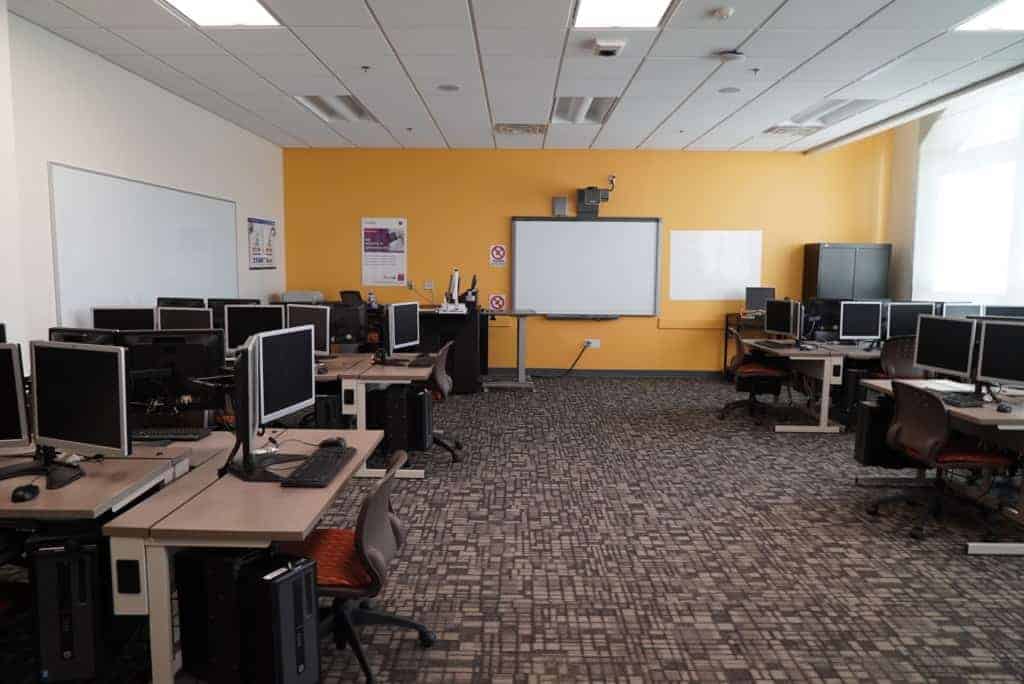

Many of those students will obtain their CompTIA certification at the college and go on to pursue cybersecurity careers in military or civilian positions. The department is partnered with RedHat, a giant in the computer software industry with a large presence in North Carolina.
In addition, Fayetteville Tech is the only community college in the state of North Carolina with a funeral services program. Students from across the state come here just to attend this program, where they learn the entire funeral business from selling caskets to the embalming process.
The college also has an extensive language department that includes Chinese, Portuguese, and Russian. EMTs have a life size ambulance in their classroom to practice before doing clinical work in the real thing. Likewise, law enforcement officers in training can do target practice on a projector screen or drive around in a cop car without leaving the building.
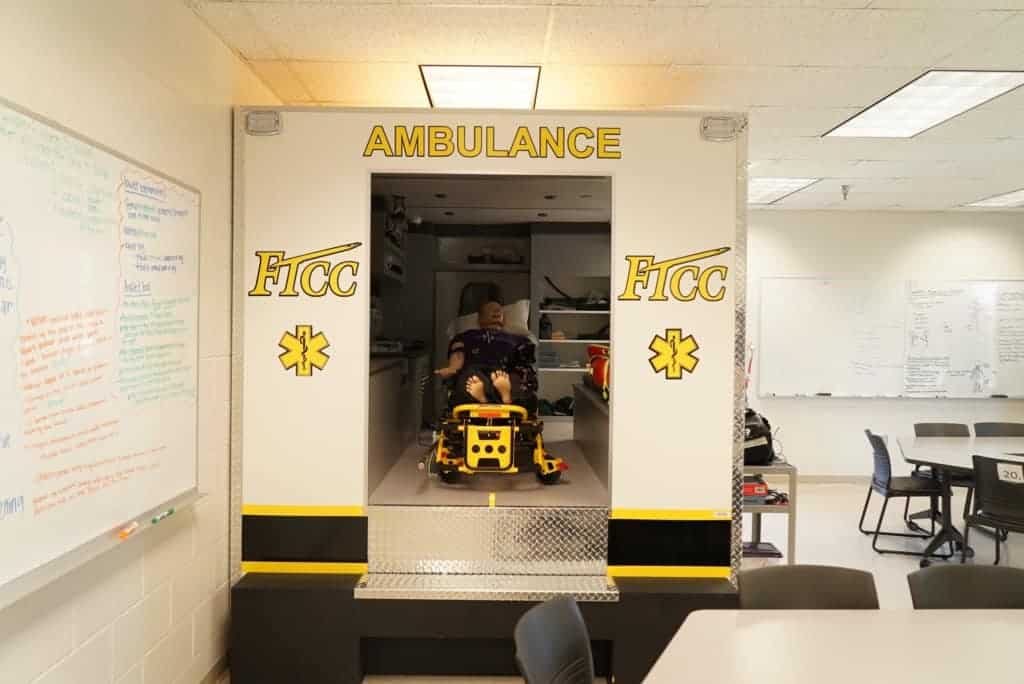

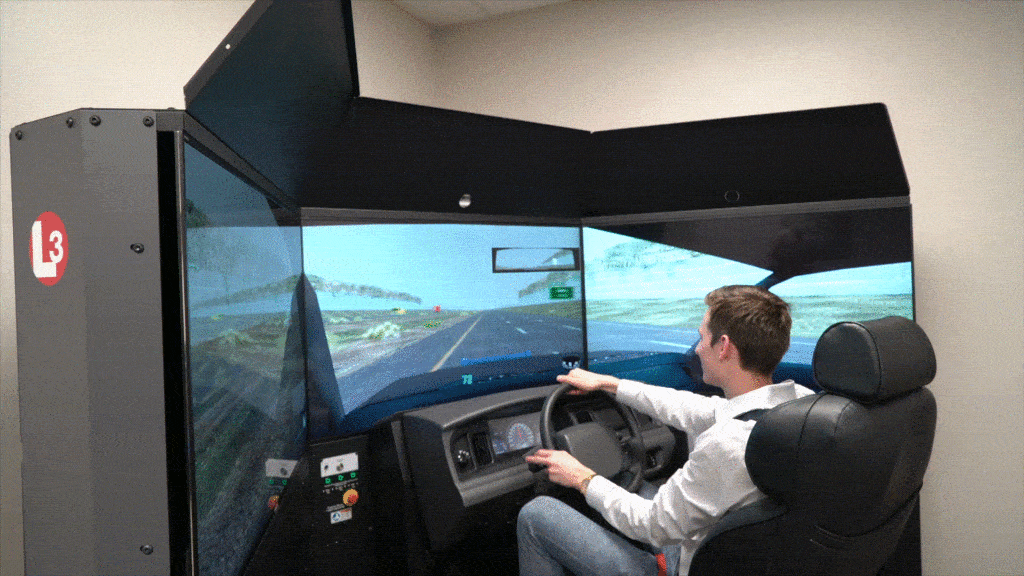

Like most community colleges, Fayetteville Tech puts a big emphasis on nursing. But its medical sciences programs are particularly robust. The college keeps local dentists’ offices stocked with qualified workers with a two-year dental hygiene program and a one-year dental assisting program. It also offers programs in physical therapy, radiography, EMS, and more. Thanks to a partnership with CVS, the pharmacology department has an in-house pharmacy stocked with real products with which to practice.
Lindsey Keith is in the dental assisting program at @FAYTECHCC – a one year diploma program. She's mixing zinc phosphate, cement used for crowns, for the first time. College also has an associate program for dental hygienists #Awake58 pic.twitter.com/pcVibgyxV3
— Robert Kinlaw (@rob3rtk) August 29, 2018
Students who graduate from those programs will likely find work wherever they go. But the college fosters lots of connections with local industries, too. Ford partners with the college for its maintenance and light repair program so that students graduate with the credentials they need to begin work right down the road at LaFayette Ford. Caliber Collision employs many students who graduate from the college’s collision program, which is partnered with Honda and dozens of other companies like PPG, Gerber, and State Farm.
Collision repair is one of the programs under the college’s Transition Tech initiative, which features programs that can help military members learn the skills they need to pursue careers beyond the military or just upgrade their skills. That could be IT, welding, CDL truck driving, and more. Many of the programs can be completed in a matter of days or weeks, so veterans retiring from service can get a job and get on their feet quickly.
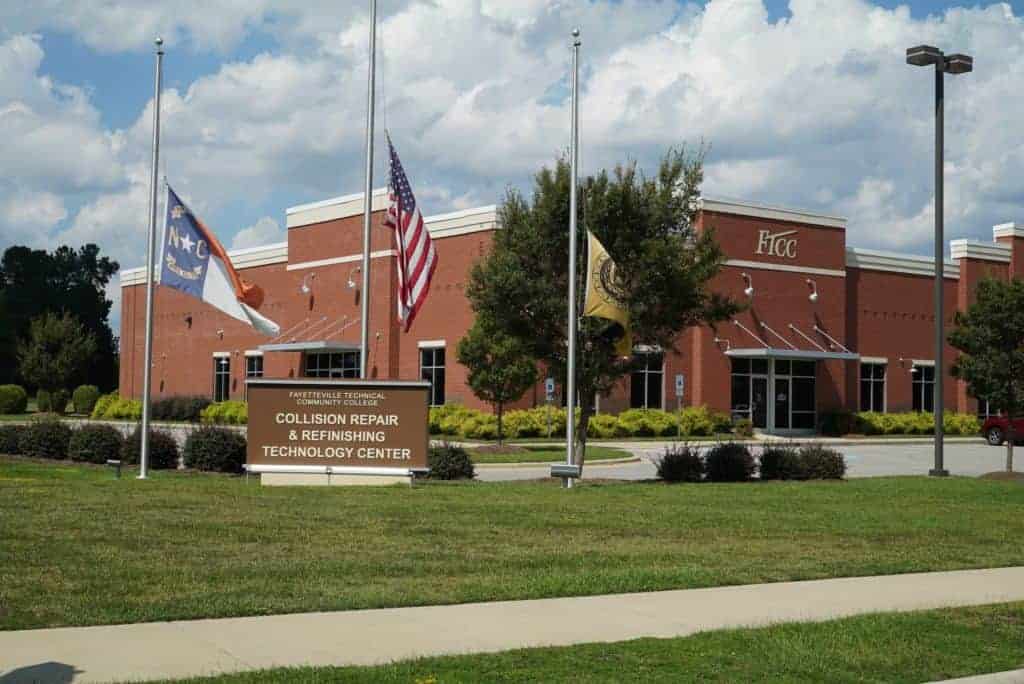

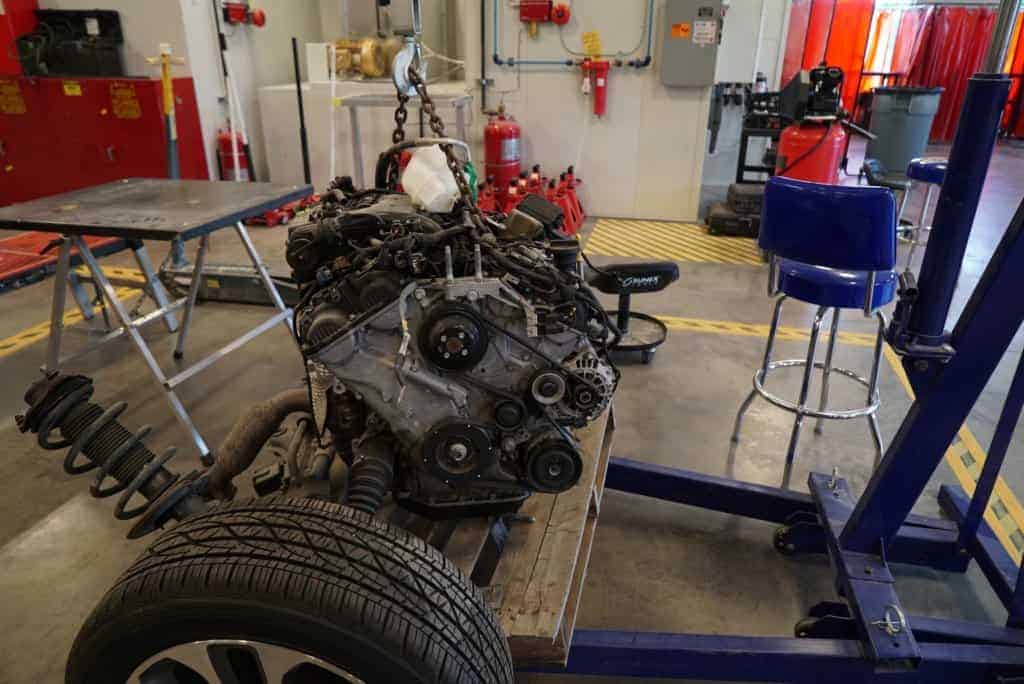

As Dr. Keen and I walked around campus getting to know students, I started to realize that he was telling almost all of them the same thing: persevere. In an area where life often changes drastically at a moment’s notice, he wanted these students to know how important it is to stay in school.
“Stick with it, both of you,” Keen said to two baseball players we found studying near the on-campus Student Learning Center. One was studying accounting.
“The opportunities for you are phenomenal, in terms of what you’re doing,” Keen told him. “It can lead you to some great things if you’ll simply just pursue it.”

